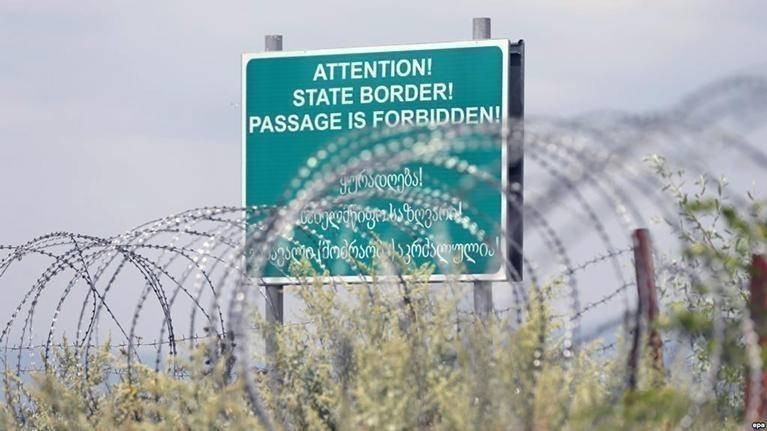საერთო ცხელი ხაზი +995 577 07 05 63


The Social Justice Center responds to the murder of a Georgian citizen, Tamaz Ginturi, by Russian occupiers in village Kirbali and sends condolences to the deceased‘s family.
As stated by the State Security Service of Georgia, the murder of Tamaz Ginturi near village Kirbali (municipality of Gori) happened while Russian occupation forces tried to illegally detain him. According to the media, Tamaz Ginturi, along with Levan Dotiashvili, with his own car, had gone to pray at the St. George Church. The shooting happened near the church territory. After the shooting, the Russian occupation forces did not provide medical aid to the wounded Tamaz Ginturi, nor did they allow the Georgian law enforcement officers to approach. Only after they were convinced that the condition of the wounded Tamaz Gintur was critical did they allow the Georgian ambulance team to arrive and take away the fatally wounded man. In the same period, the Russian military illegally detained another Georgian citizen, Levan Dotiashvili. According to the State Security Service, his life is not in danger, although detailed information about his health condition has not been released so far.
According to the residents, the church named after St. George, which is one of the Lomisa temples, is very dear to them, although the road to the church is occupied. The cemetery in the village has also been partially taken over. Nevertheless, locals, at the risk of their lives, still try to visit the graves of their ancestors and pray to the church. Information about the fact that the said church was blocked by the occupying forces was spread in the media even before it became the subject of critical public discourse after the statement of the representative of the Patriarchate that special caution was needed on the part of Georgian citizens in these places and people should refrain from raising Georgian flags.
Residents of the village Kirbali told the media that there is no security in their village. Locals also explain to us that because the occupation line is not visible in this village, there are frequent cases of arrests of Georgian citizens from this village. Despite this, there is no Georgian police station in the village. Police patrols are not also regular.
The practice of illegal arrests and abductions, and the practice of harming life and health in this process, is a severe consequence of the occupation and ongoing conflict, which puts the population living near the dividing line under constant fear and danger. International human rights law imposes the responsibility for human rights violations under the conditions of continuous occupation to the Russian Federation, which is occupying this region and the said territory is under the effective control of its military forces.
Due to continuous occupation and the so-called borderization process, the rights of Georgian citizens are grossly violated in the occupied territories. From 2016 to 2022 alone, 624 people were detained towards the occupation line in the direction of Tskhinvali, and 337 people were detained in the direction of Abkhazia. Sometimes the mass practice of illegal detentions is accompanied by degrading treatment of individuals, damage to health and deprivation of life. The most serious cases of this kind include the murder cases of Giga Othozoria (2016) and Archil Tatunashvili (2018).
Unfortunately, the efforts of the Georgian government to ensure security and prevent risks in the villages near the occupation line are weak. To this day, the villages along the dividing line do not have an early warning system that would allow law enforcement agencies to identify threats in time and take preventive measures.[1] Police work in the mentioned villages is also insufficient. According to the 2022 quantitative survey conducted with the support of the United Nations Women's Organization, 63% of the villages on the dividing line in the direction of Tskhinvali do not have a police station, and 39% of the same villages are not patrolled by the police.
Considering the case of Tamaz Ginturi's murder and the severe security context at the occupation line, we believe that it is crucial for the Georgian authorities:
[1] An Early warning system is an integrated system of threat monitoring, forecasting, risk assessment, communication, and preparedness activity systems and processes that enable individuals, communities, governments, and other actors to take timely measures to reduce security risks. "People-centered" early warning systems should include four key elements: (1) risk measurement based on systematic data collection and assessment, including the participation of local, at-risk populations; (2) detection, monitoring, analysis, and forecasting of threats and possible consequences; (3) dissemination and communication of authoritative, timely, accurate, and actionable warnings and relevant information about probability and impact by an official source; and (4) readiness to respond to warnings received at all levels. These four interrelated components must be coordinated across sectors and at different levels for the system to function effectively and include a feedback mechanism for continuous improvement.
The website accessibility instruction